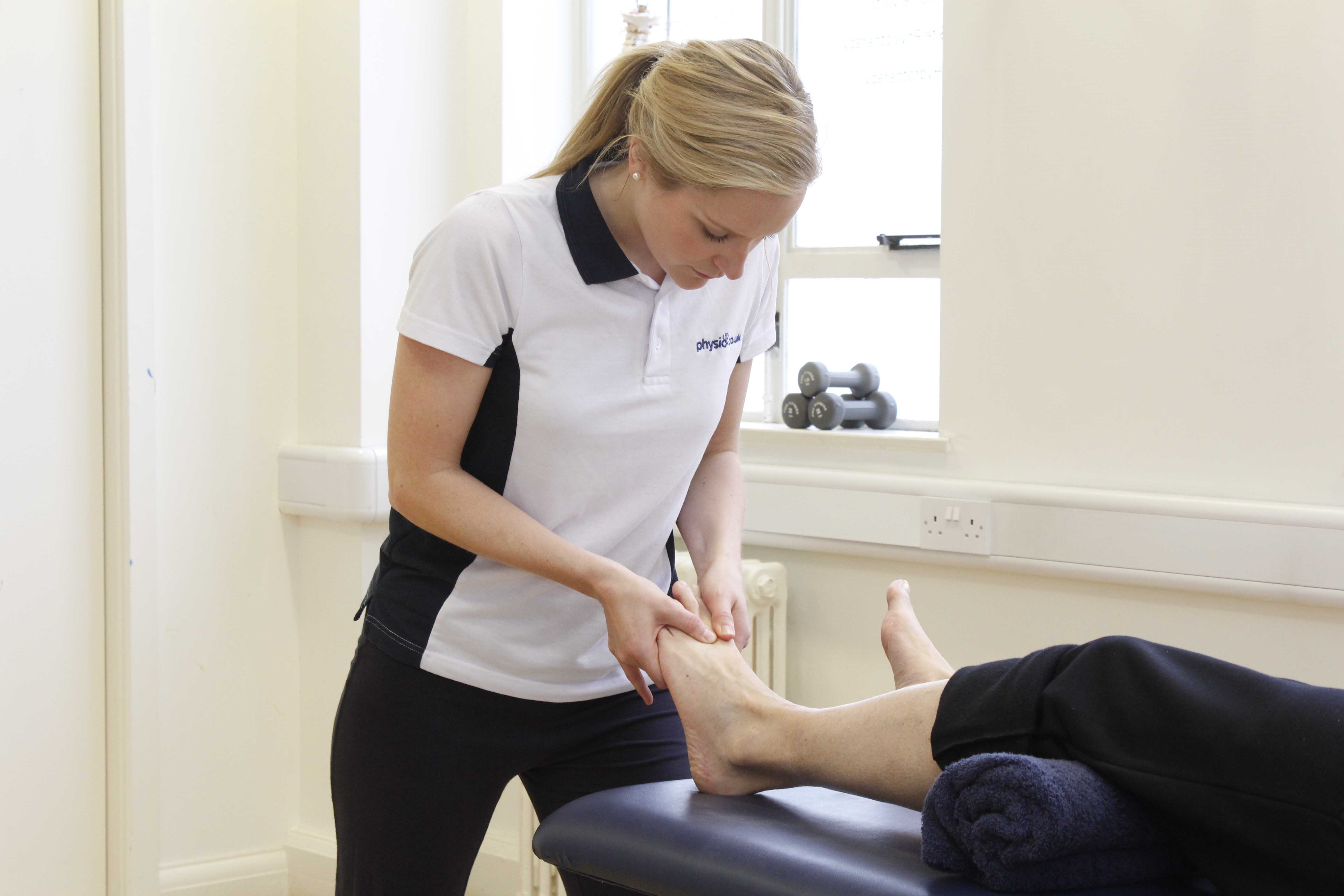What is tarsal tunnel syndrome?
Tarsal tunnel syndrome is caused by the compression of the posterior tibia nerve as it passes under the bony bump on the inner aspect of the ankle. Physiotherapy is an excellent treatment for tarsal tunnel syndrome.
How does tarsal tunnel syndrome happen?
Tarsal tunnel syndrome has numerous causes. Anything that increases the pressure on the posterior tibial nerve as it passes under the bony bump on the inner aspect of the ankle can cause tarsal tunnel syndrome. These include; swelling or adhesions following a twisted ankle, tight or enlarged tissues, cysts, varicose veins and many more. The compression of the nerve interferes with the transmission of its signals.
 Above: Passive stretch of the connective tissues in the foot and ankle by experienced therapist
Above: Passive stretch of the connective tissues in the foot and ankle by experienced therapistWhat are the symptoms of tarsal tunnel syndrome?
Tarsal tunnel syndrome causes a sharp pain along the inside and underneath of the foot. The pain is often worsened with prolonged standing, walking or running and may radiate into the arch of the foot, the heel and even the toes. You may also experience pins and needles or numbness on the sole of the foot. Other symptoms may include:
What should I do if I have tarsal tunnel syndrome?
Tarsal tunnel syndrome does not get better unless cause of the nerve entrapment is treated. If you suspect that you have tarsal tunnel syndrome, you avoid activities which aggravate your pain and arrange an initial assessment with a physiotherapist.
 Above: Mobilisations and stretches of the foot and ankle by specialised therapist
Above: Mobilisations and stretches of the foot and ankle by specialised therapistWhat shouldn’t I do if I have tarsal tunnel syndrome?
If you suspect that you have tarsal tunnel syndrome, you should not ignore it. This can lead to the condition worsening which will prolong your recovery.
Physiotherapy treatment for tarsal tunnel syndrome.
Physiotherapy is important in the treatment of tarsal tunnel syndrome. Initially, you physiotherapist will diagnose your problem and establishing its severity. Following the initial assessment, your physiotherapist will be able to advise you on the most appropriate treatment. Surgery can be performed to relieve the symptoms of tarsal tunnel syndrome. Due to the risk of complications with surgical interventions, it is unlikely that any surgeon would operate unless physiotherapy treatment had already been pursued. Physiotherapy treatment includes: If your symptoms fail to improve with physiotherapy treatment then the physiotherapists at Physio.co.uk will be able to provide you with information and advice regarding surgery and surgeons and liaise with your surgeon regarding your treatment to date.
To arrange an assessment with a specialist physiotherapist call Physio.co.uk on 0330 088 7800 or book online.

 0330 088 7800
0330 088 7800

































